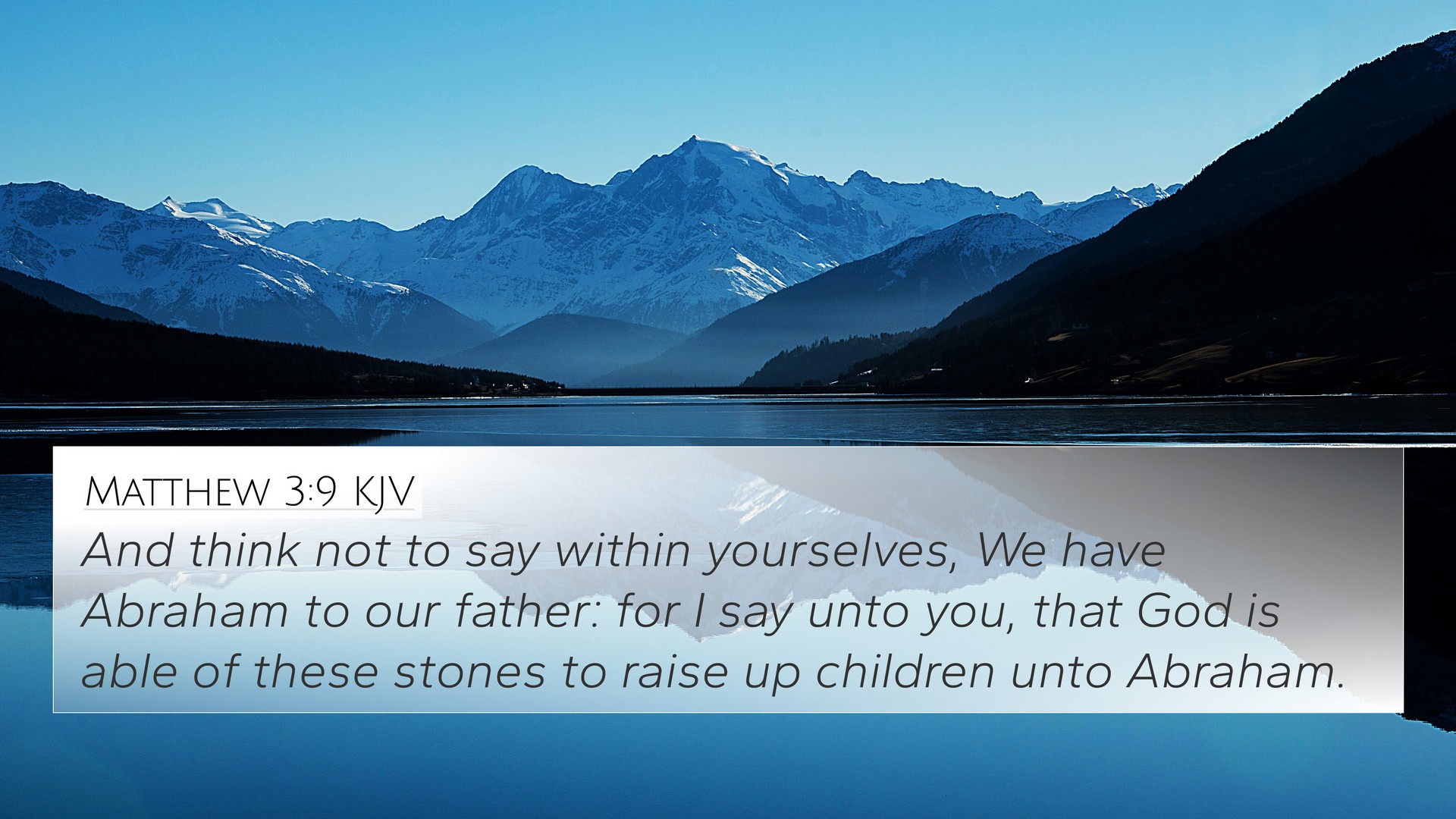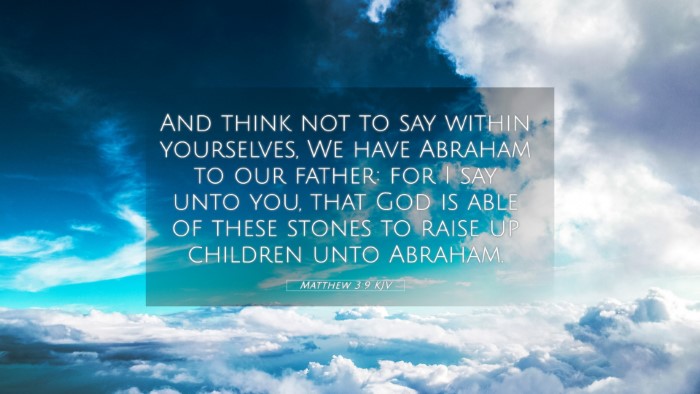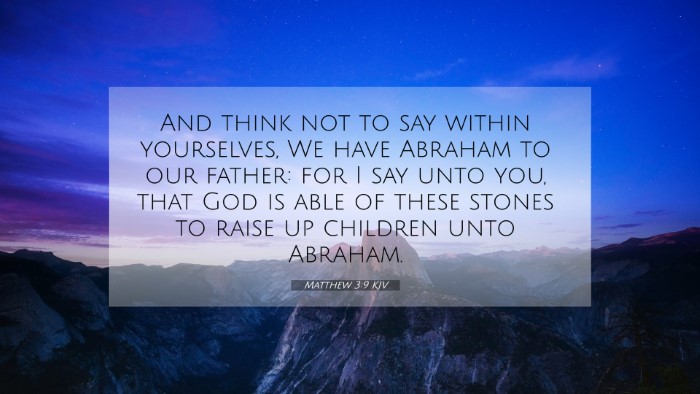This section features a detailed cross-reference designed to enrich your understanding of the Scriptures.
Below, you will find carefully selected verses that echo the themes and teachings related to Matthew 3:9 KJV. Click on any image to explore detailed analyses of related Bible verses and uncover deeper theological insights.
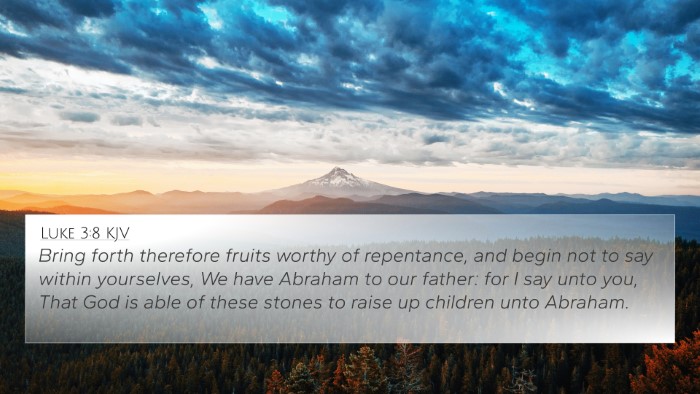 Luke 3:8 (KJV) »
Luke 3:8 (KJV) »
Bring forth therefore fruits worthy of repentance, and begin not to say within yourselves, We have Abraham to our father: for I say unto you, That God is able of these stones to raise up children unto Abraham.
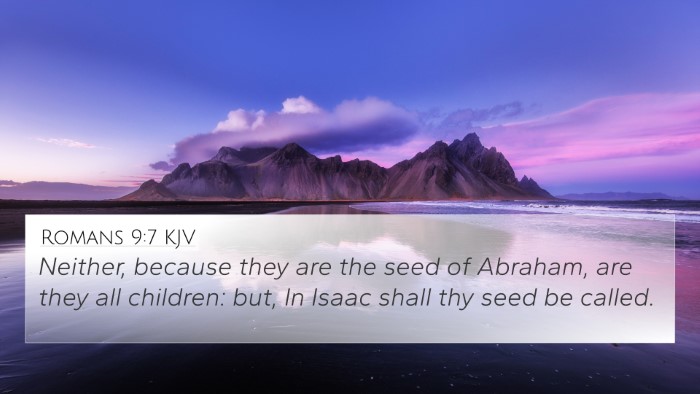 Romans 9:7 (KJV) »
Romans 9:7 (KJV) »
Neither, because they are the seed of Abraham, are they all children: but, In Isaac shall thy seed be called.
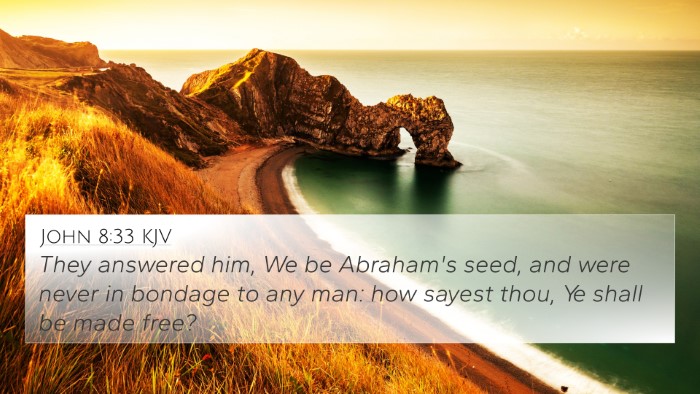 John 8:33 (KJV) »
John 8:33 (KJV) »
They answered him, We be Abraham's seed, and were never in bondage to any man: how sayest thou, Ye shall be made free?
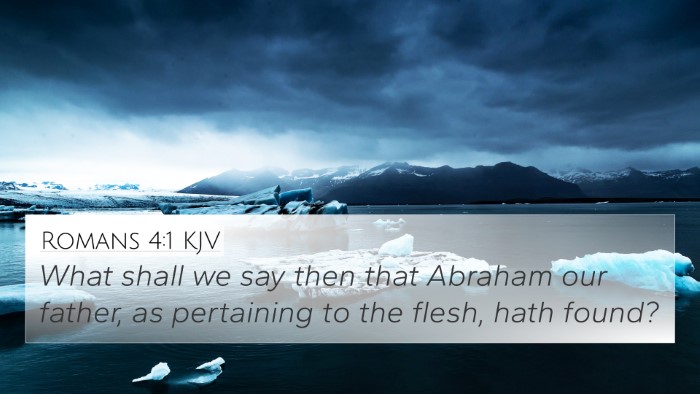 Romans 4:1 (KJV) »
Romans 4:1 (KJV) »
What shall we say then that Abraham our father, as pertaining to the flesh, hath found?
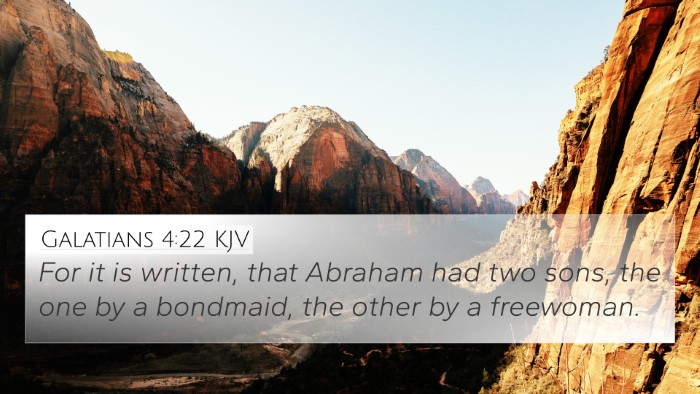 Galatians 4:22 (KJV) »
Galatians 4:22 (KJV) »
For it is written, that Abraham had two sons, the one by a bondmaid, the other by a freewoman.
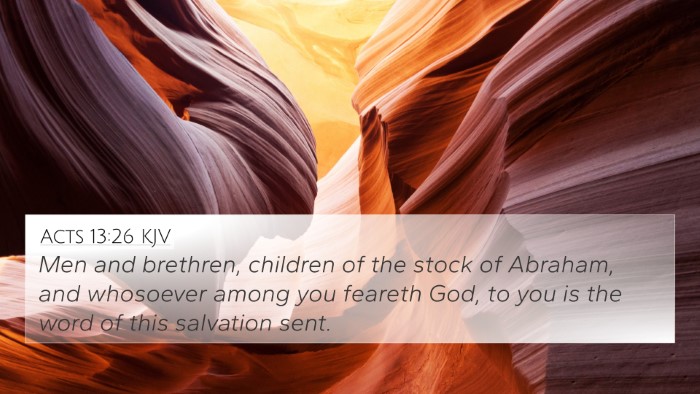 Acts 13:26 (KJV) »
Acts 13:26 (KJV) »
Men and brethren, children of the stock of Abraham, and whosoever among you feareth God, to you is the word of this salvation sent.
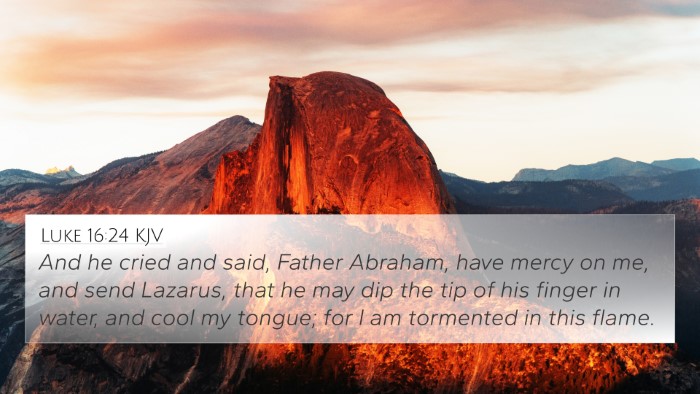 Luke 16:24 (KJV) »
Luke 16:24 (KJV) »
And he cried and said, Father Abraham, have mercy on me, and send Lazarus, that he may dip the tip of his finger in water, and cool my tongue; for I am tormented in this flame.
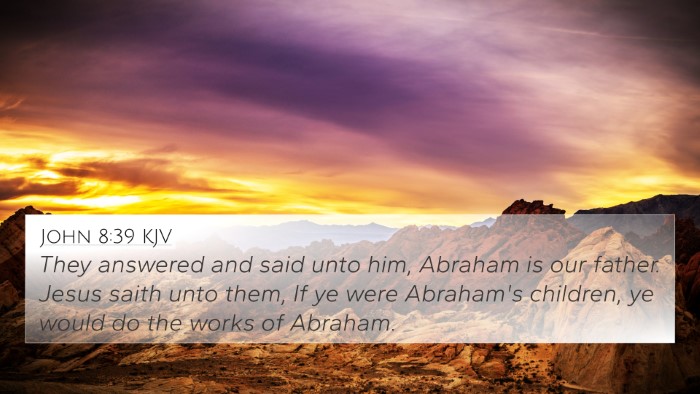 John 8:39 (KJV) »
John 8:39 (KJV) »
They answered and said unto him, Abraham is our father. Jesus saith unto them, If ye were Abraham's children, ye would do the works of Abraham.
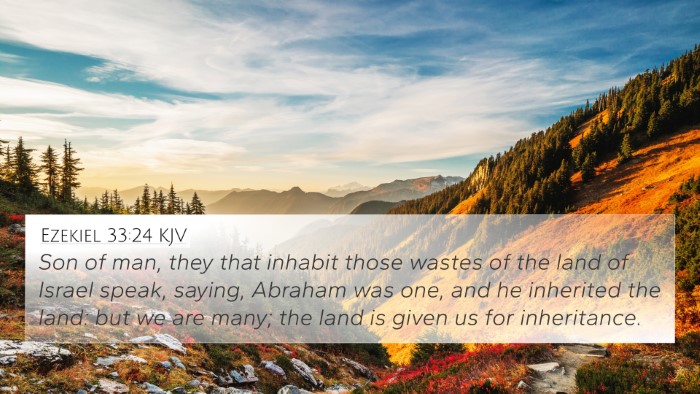 Ezekiel 33:24 (KJV) »
Ezekiel 33:24 (KJV) »
Son of man, they that inhabit those wastes of the land of Israel speak, saying, Abraham was one, and he inherited the land: but we are many; the land is given us for inheritance.
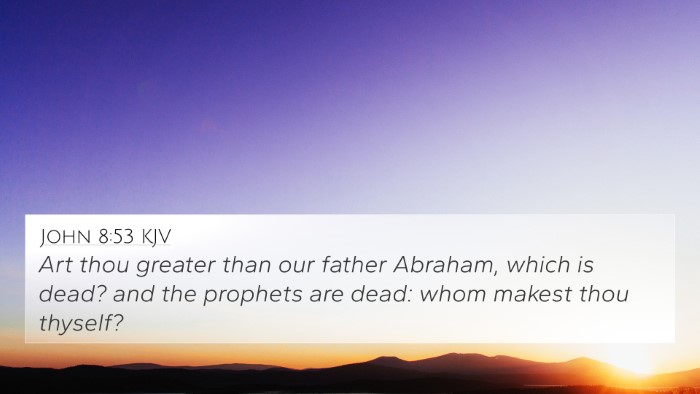 John 8:53 (KJV) »
John 8:53 (KJV) »
Art thou greater than our father Abraham, which is dead? and the prophets are dead: whom makest thou thyself?
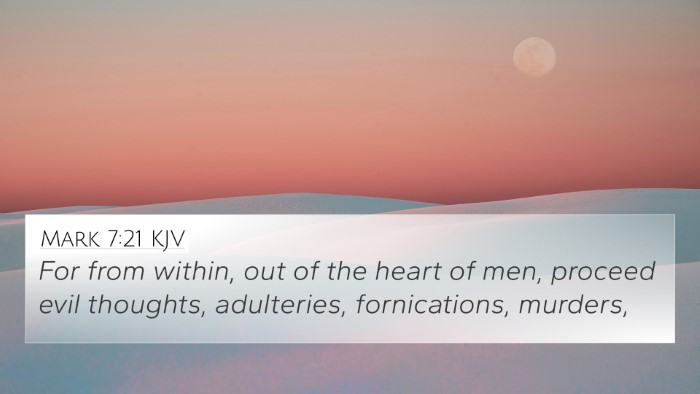 Mark 7:21 (KJV) »
Mark 7:21 (KJV) »
For from within, out of the heart of men, proceed evil thoughts, adulteries, fornications, murders,
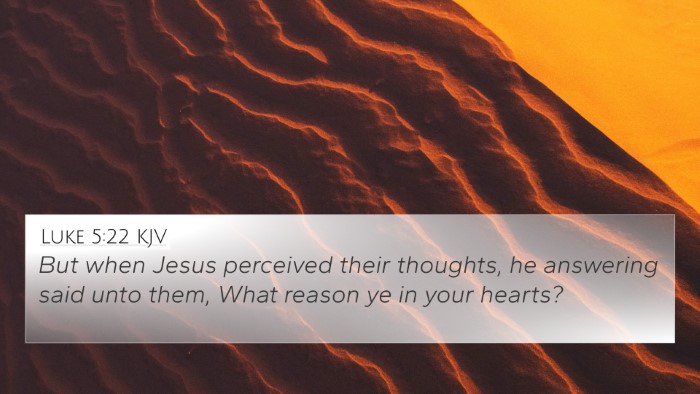 Luke 5:22 (KJV) »
Luke 5:22 (KJV) »
But when Jesus perceived their thoughts, he answering said unto them, What reason ye in your hearts?
 Luke 7:39 (KJV) »
Luke 7:39 (KJV) »
Now when the Pharisee which had bidden him saw it, he spake within himself, saying, This man, if he were a prophet, would have known who and what manner of woman this is that toucheth him: for she is a sinner.
 1 Corinthians 1:27 (KJV) »
1 Corinthians 1:27 (KJV) »
But God hath chosen the foolish things of the world to confound the wise; and God hath chosen the weak things of the world to confound the things which are mighty;
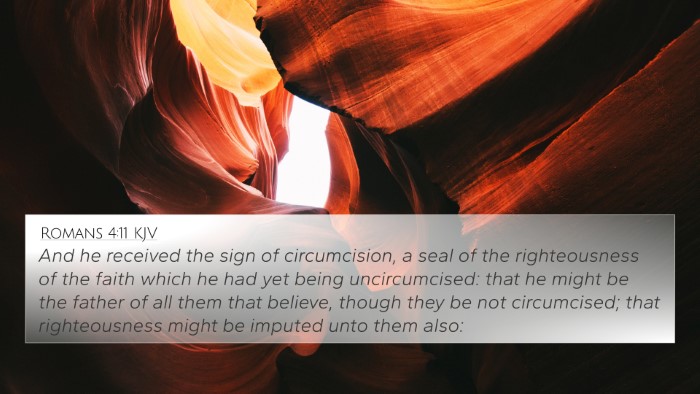 Romans 4:11 (KJV) »
Romans 4:11 (KJV) »
And he received the sign of circumcision, a seal of the righteousness of the faith which he had yet being uncircumcised: that he might be the father of all them that believe, though they be not circumcised; that righteousness might be imputed unto them also:
 Luke 19:40 (KJV) »
Luke 19:40 (KJV) »
And he answered and said unto them, I tell you that, if these should hold their peace, the stones would immediately cry out.
 Acts 15:14 (KJV) »
Acts 15:14 (KJV) »
Simeon hath declared how God at the first did visit the Gentiles, to take out of them a people for his name.
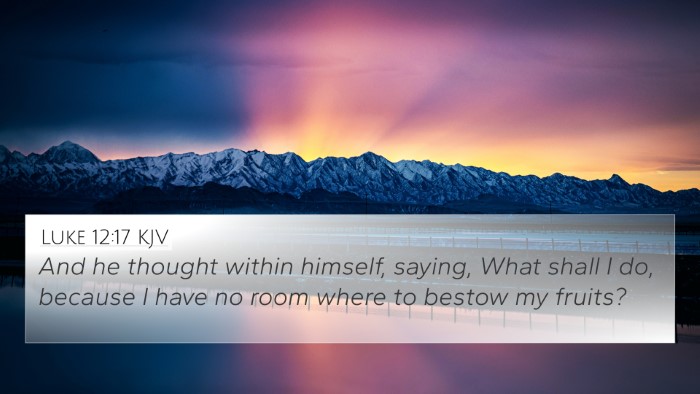 Luke 12:17 (KJV) »
Luke 12:17 (KJV) »
And he thought within himself, saying, What shall I do, because I have no room where to bestow my fruits?
 Matthew 8:11 (KJV) »
Matthew 8:11 (KJV) »
And I say unto you, That many shall come from the east and west, and shall sit down with Abraham, and Isaac, and Jacob, in the kingdom of heaven.
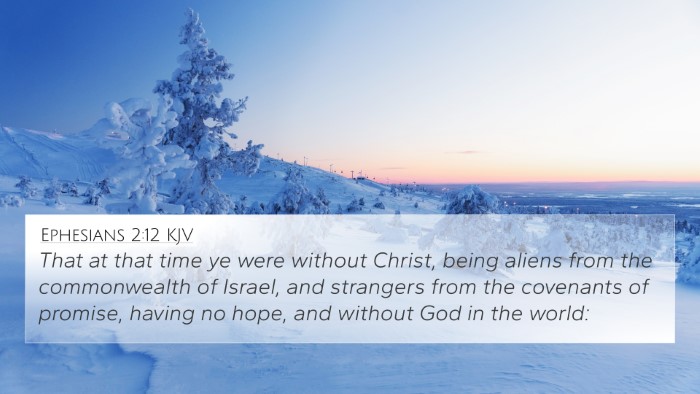 Ephesians 2:12 (KJV) »
Ephesians 2:12 (KJV) »
That at that time ye were without Christ, being aliens from the commonwealth of Israel, and strangers from the covenants of promise, having no hope, and without God in the world:
